Foods to Avoid When Breastfeeding
51 hours of research 5 minute read

Bringing a new life into the world is a miraculous and transformative experience for any mother. As you embark on this beautiful journey of motherhood, one of the most precious gifts you can give your little one is the nourishment and comfort that comes from breastfeeding. Breast milk provides a perfect blend of essential nutrients and antibodies, tailored specifically to meet your baby's unique needs. As a breastfeeding mother, it's important to prioritize your own health and well-being to ensure the highest quality milk for your little bundle of joy.
While maintaining a healthy and balanced diet is crucial during this time, it's equally important to be aware of the foods that might have adverse effects on your baby through breast milk. In this blog post, we'll explore some foods to avoid when breastfeeding and the reasons behind these recommendations. Understanding these dietary considerations can empower you to make informed choices, leading to a healthier and happier breastfeeding experience for both you and your baby.
Why your diet matters when breastfeeding?
Breastfeeding is an extraordinary and natural way to nourish your baby, providing them with a unique blend of essential nutrients and antibodies that support their growth and development. As a breastfeeding mother, your diet plays a crucial role in ensuring the quality and quantity of the breast milk you produce. What you eat directly influences the composition of your milk, making it important to pay attention to your dietary choices during this special time. Let's explore why your diet matters when breastfeeding and how it impacts both you and your little one.
Your body is a remarkable machine, capable of producing milk that is perfectly tailored to meet your baby's nutritional needs. When you consume a healthy and varied diet, your breast milk becomes a rich source of vitamins, minerals, proteins, and healthy fats, providing your baby with the building blocks they require for optimal growth and development. By prioritizing nutrient-dense foods, you can ensure that your milk is packed with all the essential nutrients your baby needs during this critical stage of their life.
Breastfeeding is a demanding task that requires energy and stamina. Your body needs additional calories and nutrients to produce an adequate milk supply while also maintaining your own health and well-being. Consuming a balanced diet can help replenish your energy levels, support postpartum recovery, and prevent nutrient deficiencies that may arise during this period. Prioritizing whole grains, lean proteins, fruits, vegetables, and healthy fats can provide you with the energy and nutrients necessary for both breastfeeding and overall wellness.
Breast milk is not only a source of nourishment but also plays a crucial role in your baby's immune system development. Certain nutrients, such as omega-3 fatty acids, vitamins A and C, zinc, and selenium, are essential for immune function and can be found in foods like fish, citrus fruits, nuts, and seeds. By incorporating these foods into your diet, you can support your baby's immune system and help protect them against illnesses and infections.
By nurturing your body with wholesome foods and staying well-hydrated, you can ensure a nourishing breastfeeding journey for both you and your precious little one. Your diet matters, and by making informed choices, you are creating a foundation of health and vitality for your baby's future.
What are the best foods for breastfeeding moms?

As a breastfeeding mother, your diet plays a vital role in supporting your health and providing optimal nutrition for your baby. While there's no one-size-fits-all breastfeeding diet, focusing on nutrient-rich foods can help meet your body's increased demands and ensure a plentiful supply of high-quality breast milk. Let's explore some of the best foods for breastfeeding moms, packed with essential nutrients to nourish both you and your little one.
Whole Grains
Here are some easy-to-understand examples of foods made from whole grains that you can eat while breastfeeding:
- Oatmeal: Have a warm bowl of oatmeal in the morning. You can add fruits, nuts, or a bit of honey or maple syrup for flavor.
- Whole Grain Bread: Choose bread that says "whole grain" on the label for your sandwiches or toast. Look for bread that has ingredients like whole wheat or whole oats.
- Quinoa: Add quinoa to your salads or meals. It's a grain that has protein, fiber, and important minerals.
- Brown Rice: Instead of white rice, go for brown rice. It has more fiber and nutrients because it keeps the bran and germ layers.
- Whole Grain Pasta: Pick pasta that is made from whole wheat or whole grains. It's better for you than white pasta because it has more fiber and nutrients.
- Barley: Use barley in soups, stews, or grain bowls. It has a nutty taste and adds a nice texture to your meals.
- Whole Grain Cereal: Look for cereals that have whole grains and low amounts of added sugar. Eat them with milk or yogurt and add fresh fruit for a healthy breakfast.
Remember to check the labels and choose products that say "whole grains" or "100% whole wheat" so you know you're getting the good stuff. These foods will give you energy, fiber, and important nutrients while breastfeeding.
Lean Proteins
Here are some examples of lean protein foods that you can enjoy while breastfeeding:
- Skinless Chicken or Turkey: Opt for skinless chicken or turkey breast, which are excellent sources of lean protein. You can grill, bake, or sauté them for a tasty and nutritious meal.
- Fish: Fish like salmon, trout, and tuna are rich in omega-3 fatty acids and provide lean protein. Aim for varieties that are low in mercury and cook them by grilling, baking, or broiling for a healthy and delicious option.
- Beans and Legumes: Foods like lentils, chickpeas, black beans, and kidney beans are packed with protein and fiber. They are versatile and can be added to soups, stews, salads, or made into delicious vegetarian patties.
- Tofu: Tofu is a plant-based protein source that is derived from soybeans. It's a great option for vegetarians or those looking to incorporate more plant-based proteins into their diet. You can stir-fry, bake, or grill tofu for a satisfying and protein-rich meal.
- Greek Yogurt: Greek yogurt is not only creamy and delicious but also high in protein. It can be enjoyed on its own or mixed with fruits and nuts for a nutritious snack or breakfast option.
- Eggs: Eggs are an excellent source of high-quality protein. You can have them boiled, scrambled, or made into omelets for a quick and protein-packed meal.
- Lean Beef or Pork: If you prefer red meat, opt for lean cuts such as sirloin, tenderloin, or pork loin. Trim off visible fat before cooking to make it a healthier choice.
Remember to cook your proteins using healthy cooking methods, such as grilling, baking, or steaming, and pair them with colorful vegetables or whole grains for a well-rounded and nutritious meal. Enjoy exploring different recipes and flavors to keep your meals interesting and satisfying while providing essential nutrients for both you and your baby.
Colorful Fruits and Vegetables
Here are some examples of colorful fruits and vegetables that you can eat while breastfeeding:
- Berries: Enjoy different kinds of berries like strawberries, blueberries, raspberries, and blackberries. They have vitamins, antioxidants, and fiber.
- Leafy Greens: Eat greens like spinach, kale, and Swiss chard. They have vitamins A, C, and K, as well as iron and calcium.
- Citrus Fruits: Include fruits like oranges, grapefruits, lemons, and limes. They have lots of vitamin C to help your immune system.
- Bell Peppers: Try colorful bell peppers, like red, yellow, and green ones. They have vitamins A and C.
- Tomatoes: Add tomatoes to your salads, sandwiches, or pasta dishes. They have an antioxidant called lycopene.
- Carrots: Snack on raw carrot sticks or put them in stir-fries and salads. Carrots have vitamin A and give a good crunch.
- Sweet Potatoes: Cook sweet potatoes by roasting or baking them. They have vitamins A and C, fiber, and potassium.
- Mangoes: Enjoy juicy mangoes as a sweet and tropical treat. They have vitamins A and C, and fiber.
- Avocado: Slice avocado and add it to salads, sandwiches, or smoothies. It gives creaminess and has healthy fats.
- Red Cabbage: Use red cabbage in your meals for a bright color and vitamins C and K.
Try to have a variety of colors in your fruits and vegetables because each color has different good things for you. Use these colorful foods in different recipes to make your meals tasty and nutritious. They give you important vitamins, minerals, and antioxidants that are good for your health while you breastfeed.
Healthy Fats
Here are some examples of healthy fats that you can include in your diet while breastfeeding:
- Nuts and Seeds: Almonds, walnuts, chia seeds, flaxseeds, and pumpkin seeds are excellent sources of healthy fats. They also provide essential nutrients like omega-3 fatty acids and fiber. Snack on a handful of nuts or sprinkle seeds on top of yogurt, oatmeal, or salads.
- Olive Oil: Olive oil is a staple in Mediterranean cuisine and is known for its monounsaturated fats and antioxidant properties. Use it for cooking, drizzling over vegetables, or making homemade salad dressings.
- Fatty Fish: Fish like salmon, trout, sardines, and mackerel are rich in omega-3 fatty acids, which are beneficial for brain health and inflammation reduction. Aim to include fatty fish in your diet 2-3 times per week.
- Coconut Oil: Coconut oil contains medium-chain triglycerides (MCTs), which are easily digested and provide a quick source of energy. It can be used for cooking, baking, or adding flavor to smoothies.
- Nut Butter: Peanut butter, almond butter, and other nut butters are packed with healthy fats. Spread them on whole grain bread, add them to smoothies, or use them as a dip for fruits and vegetables.
- Dark Chocolate: Dark chocolate with a high cocoa content (70% or higher) contains monounsaturated fats and antioxidants. Enjoy a small piece as a satisfying and indulgent treat.
Remember to consume healthy fats in moderation as they are calorie-dense. Incorporating these foods into your diet can help support brain function, provide long-lasting energy, and promote overall well-being while breastfeeding.
Hydration
Stay well-hydrated with water and herbal teas, such as chamomile or fennel tea. Hydration is essential for milk production and your overall well-being. Aim to drink 8 to 10 cups (64 to 80 ounces) of fluids per day, adjusting for individual needs.
Remember, maintaining a healthy diet while breastfeeding is about nourishing yourself and your baby. It's not about strict rules or perfection, but rather about making mindful choices and finding a balance that works for you. If you have any specific dietary concerns or restrictions, consulting with a healthcare professional or a registered dietitian can provide personalized guidance tailored to your needs.
How much water should a breastfeeding mom drink?

Staying hydrated is important for breastfeeding moms to support milk production and overall health. While there's no fixed rule for water intake during breastfeeding, it's crucial to prioritize hydration. Here are some guidelines on how much water a breastfeeding mom should drink to ensure adequate hydration for herself and her baby.
- Listen to Thirst
Pay attention to your body's signals of thirst and drink water whenever you feel parched. Thirst is your body's way of telling you it needs hydration, so it's important to listen and respond accordingly.
- Increase Fluid Intake
Breastfeeding moms generally need more fluids to compensate for the water lost through breast milk. Aim to consume 8 to 10 cups (64 to 80 ounces) of fluids per day, including water, herbal teas, and other hydrating beverages.
- Check Urine Color
Monitor the color of your urine as a hydration indicator. Light, pale yellow urine suggests adequate hydration, while darker urine may indicate a need for more fluids. Keep an eye on your urine color and adjust your fluid intake accordingly.
- Consider Individual Factors
Your fluid needs may vary based on factors like climate, activity level, and body weight. Adjust your water intake accordingly, especially in hot weather or during physical activity. Listen to your body's signals and make sure to provide it with the hydration it needs.
Hydrating Foods and Beverages For Breastfeeding Moms
Here are some examples of hydrating foods and beverages that can help keep you well-hydrated while breastfeeding:
- Water: Water is the best and most essential hydrating beverage. Make sure to drink an adequate amount of water throughout the day. Carry a water bottle with you to remind yourself to stay hydrated.
- Fruits with High Water Content: Many fruits have a high-water content, which can contribute to your hydration. Some examples include watermelon, strawberries, oranges, grapefruits, and pineapples. Snack on these juicy fruits to boost your hydration levels.
- Vegetables with High Water Content: Like fruits, certain vegetables contain a significant amount of water. Cucumber, lettuce, celery, zucchini, and tomatoes are great options. Incorporate these vegetables into your salads, sandwiches, or as crunchy snacks.
- Smoothies: Smoothies made with water, milk, or hydrating fruits like watermelon or berries can be a delicious and hydrating beverage option. You can also add vegetables like spinach or cucumber for added hydration and nutrients.
- Coconut Water: Coconut water is a natural electrolyte-rich drink that can replenish your body's hydration levels. It's a refreshing choice for staying hydrated, especially during hot weather or after physical activity.
- Herbal Teas: Herbal teas, such as chamomile, mint, or fruit-infused teas, can be hydrating alternatives to plain water. Avoid teas with caffeine as they may have a diuretic effect.
- Soups and Broths: Homemade soups and broths can provide hydration while also delivering essential nutrients. Opt for clear broths or vegetable-based soups to maximize hydration.
- Greek Yogurt: Greek yogurt is not only a good source of protein but also contains a significant amount of water. Enjoy it on its own or incorporate it into smoothies or parfaits.
Remember, staying hydrated is essential for milk production and your well-being. Listen to your body, increase fluid intake, and include hydrating foods and beverages in your diet. Consult a healthcare professional if you have any concerns or specific medical conditions. They can provide personalized advice based on your individual needs.
Foods to avoid while breastfeeding: Protecting your baby's health

While breastfeeding, it's important to be aware of certain foods that may have adverse effects on your baby or your breast milk. Here are some foods to avoid or consume in moderation:
Caffeine:
- High levels of caffeine can make your baby fussy or restless.
- Limit your intake of coffee, tea, energy drinks, and other caffeinated beverages.
- Be cautious of hidden sources of caffeine like chocolate and certain medications.
Alcohol:
- Consuming alcohol can pass into your breast milk and affect your baby's development and sleep patterns. It's best to avoid alcohol while breastfeeding.
- If you choose to drink occasionally, wait at least two hours per standard drink before nursing your baby.
Fish with High Mercury Content:
- shark
- swordfish
- king mackerel
- tilefish
Strongly Flavored or Spicy Foods:
- Some babies may be sensitive to strongly flavored or spicy foods through breast milk, which can cause digestive issues or fussiness.
- Pay attention to your baby's reactions and adjust your diet accordingly.
Allergenic Foods:
- If you have a family history of food allergies or your baby shows signs of allergic reactions, consider avoiding common allergenic foods like peanuts, tree nuts, cow's milk, eggs, soy, wheat, and shellfish.
However, it's essential to discuss this with a healthcare professional to ensure proper nutrition for both you and your baby.
Medication or Herbal Supplements:
Be cautious with any medication or herbal supplements you take while breastfeeding. Some substances can pass into your breast milk and affect your baby. Always consult with a healthcare professional before taking any new medication or supplements.
Most Popular Formulas to Supplement Breastmilk
While breastfeeding is the preferred method of infant feeding, there are situations where supplementing with formula becomes necessary. Whether facing challenges such as low milk supply, dietary restrictions, or personal preferences, mothers may find it essential to supplement their baby's diet with formula. Understanding which formulas are trusted and popular among breastfeeding parents can provide valuable insight into ensuring your baby receives the best possible nutrition. In such cases, choosing formulas that closely mimic breast milk's composition can offer a reassuring option for both mom and baby. These formulas provide essential nutrients and can support healthy growth and development, ensuring that babies receive the nourishment they need, even when breastfeeding alone is not feasible. Below are some of the popular European baby formulas that most parents use as a supplement or alternative to breastmilk:
✓ 100% Organic Formula
✓ With Added Prebiotics and Probiotics to Mimic Breast Milk
✓ HiPP's most popular formula
Check PricePopular With Parents Because: HiPP Dutch significantly exceeds all European Union requirements for organic certification. To help kick start a healthy gut microbiome, HiPP Dutch imitates natural breast milk by having added prebiotics and probiotics, alongside immuno-boosting galacto-oligosaccharides originating from organic lactic acid bacteria cultures. This formula is GMO-free, gluten-free, soy-free, starch-free, corn syrup-free, and sugar-free - all the while nutritionally rich.
✓ Contains Milk Fat Globule Membrane (MFGM) like in Breast Milk
✓ Vegetarian-friendly (Contains Plant-Based DHA and ARA)
✓ EU and British Soil Association Certified Organic
Check PricePopular With Parents Because: Kendamil Organic is beloved by parents for its commitment to wholesome, organic ingredients and sustainable practices. Its gentle formula, free from palm oil and GMOs, exclusively uses full cream cow's milk to create a lactose-based infant formula that is as close to natural human breast milk as a formula can be made.
✓ Demeter certified (Organic++)
✓ Easy-to-digest Goat Milk Formula Close to Breast Milk
✓ Popular for babies with sensitivity to cow's milk
Check PricePopular With Parents Because: Holle Goat Dutch is a trusted alternative for parents seeking a gentle formula for babies with cow's milk sensitivities. It is developed to closely resemble natural breast milk protein composition. Additionally, it is lactose-rich and easy to digest, as it is made from Organic Whole Goat's Milk.
Supplements and herbal teas: What's safe for breastfeeding?
When it comes to supplements and herbal teas while breastfeeding, it's important to exercise caution and consult with a healthcare professional before introducing anything new to your routine. While many supplements and teas are generally safe, some may contain ingredients that could potentially have an impact on your baby through breast milk. Here are some guidelines to consider:
Consult a Healthcare Professional
Before taking any supplements or regularly consuming herbal teas, it's crucial to consult with your healthcare professional or a registered dietitian who is knowledgeable about breastfeeding. They can guide you on safe options based on your specific needs and medical history.
Avoid Unregulated Supplements
Steer clear of unregulated supplements or those that make exaggerated claims about increasing milk supply or promoting weight loss. These products may contain undisclosed ingredients or have unproven safety profiles.
Be Cautious with Herbal Teas
While many herbal teas are safe for breastfeeding, some may have potential side effects or interact with medications. It's essential to research and consult with a healthcare professional to ensure the teas you choose are safe and appropriate for breastfeeding.
Consider Known Safety Profiles
Certain supplements, such as omega-3 fatty acids (from fish oil) and vitamin D, have well-established safety profiles and can be beneficial for breastfeeding mothers. However, it's still important to discuss their use and dosage with a healthcare professional to ensure optimal safety and effectiveness.
Read Labels Carefully
If you choose to take any supplements, read the labels carefully to check for any potential allergens or ingredients that may not be suitable for breastfeeding. Look for reputable brands and consult with a healthcare professional if you have any doubts or concerns.
Foods To Eat While Breast Feeding
Breastfeeding is a remarkable and intimate bonding experience between a mother and her baby. By prioritizing your diet and making informed choices, you can provide the best possible nourishment for your little one while supporting your own health and well-being. Remember to focus on nutrient-dense foods, stay hydrated, and consult with healthcare professionals for personalized guidance. With knowledge and mindful choices, you can embark on a fulfilling breastfeeding journey that benefits both you and your precious baby.
3 Most Popular European Formulas
References:



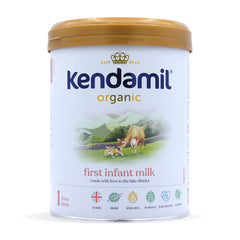
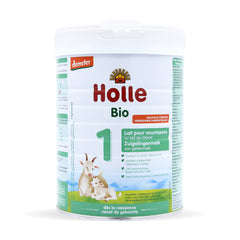
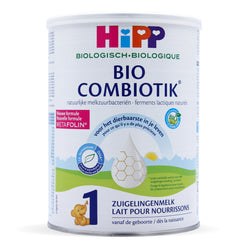
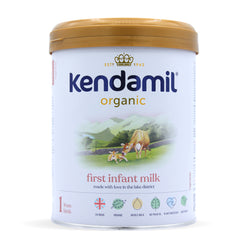
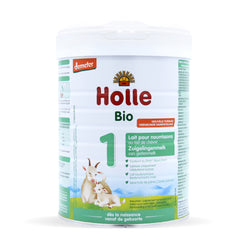






Antonia Burr -
I tried avoiding spicy foods while breastfeeding, but my experience was totally different because my baby actually seemed completely unbothered and even nursed better after I ate flavorful meals. It just goes to show how every baby reacts differently, so listening to your own little one is key!
Stacey Muller -
I wanted to try switching from breastfeeding to formula feeding through getting a HiPP Dutch baby formula. Would any mama care to share their experience with using the formula and the switch in general?